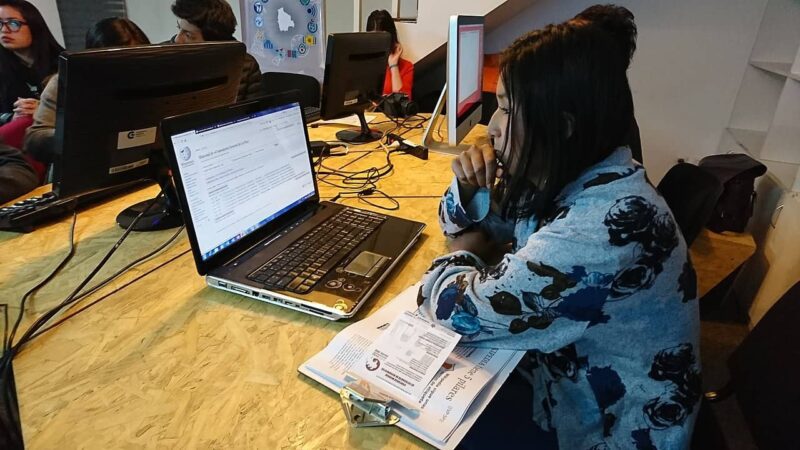 Bolivia has no adequate legislation to protect digital rights, and while this affects people throughout the country, the issues differ from region to region. A few international organisations have touched on the topic of digital rights, but this is work that cannot be done without a true understanding of the local context.
Bolivia has no adequate legislation to protect digital rights, and while this affects people throughout the country, the issues differ from region to region. A few international organisations have touched on the topic of digital rights, but this is work that cannot be done without a true understanding of the local context.
Ms Q works for a small organisation based in La Paz, with three paid staff and around 20 volunteers. With support from Internews, the team drafted a personal data protection Bill. They then took this to four locations – La Paz, El Alto, Cochabamba and Santa Cruz – to understand local concerns, to test whether the specifics of the proposed legislation could work in each context, and to begin a national movement to advocate for internet freedom.
In each of the four locations, the team organised two events: one was open to the public, and the other was aimed at specific audiences, according to local priorities.
The La Paz event targeted academics, as well as ISP providers, tech startups and activists. A Senator who had previously drafted a data protection bill also attended the public event: she had been working ‘behind closed doors’, as the government traditionally resisted this type of legislation, but she was interested in hearing more about citizen-led approaches to digital rights.
The majority of people participating in the El Alto events were journalists. Ms Q explained,
“El Alto was built 20 years ago, with the remnants of the people who didn’t have economic opportunities. These people tried to move to La Paz, but the government housed them in this ‘ghetto’ on the outskirts of the capital.”
The people there are entrepreneurial, and have the spirit of activism, but they’re poor. El Alto was the principal support base for the ruling party until a violent incident seven years ago, and now they’re in opposition.
As a result, when journalists criticise government policies or positions, it is not unusual for them to be threatened. Journalists told us that they feel they’re under constant surveillance, and constant threat. So their solution is to censor themselves. They’re not free.”
Cochabamba has a large student population, and the events engaged large numbers of young people. University professors brought groups of students, with many coming forward to ask how they can participate in future activities.
Finally, in Santa Cruz, the team saw more activists, particularly feminists, who were experienced in the field of ‘offline’ human rights, but for whom the idea of digital rights was new.
As Ms Q said,
“Because they’re on the frontline, they need to know that their information is safe, and how to have safer communications.”
The Bill is now with the government, but as Bolivia is about to have a general election, it is not guaranteed to be passed, or even discussed, this year.
Ms Q sees this as an opportunity to raise awareness of digital rights, and to build popular support for the Bill.
More Case Studies:
Togo | Bolivia | The Gambia | Argentina | India | Kyrgyz Republic | Ukraine | Cameroon | Mexico | Grassroots Initiatives Home Page
(Banner photo: A woman works in an Internet cafe in Bolivia. Credit: Olga Viota/CC)
